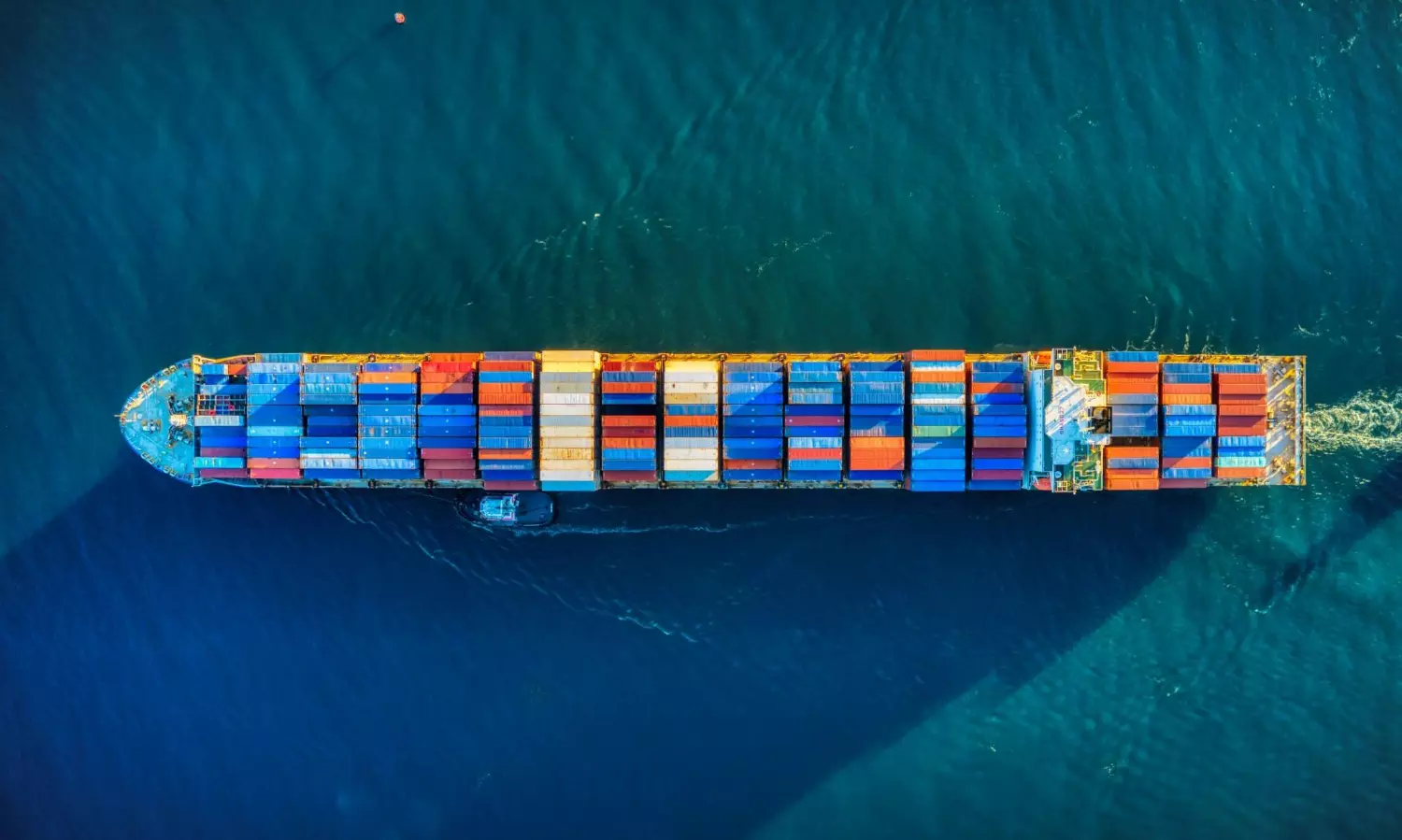Russians/Ukrainians are 15% of seafarers; safety concerns all
Nearly 1.9 million seafarers are currently operating over 74,000 vessels in the global merchant fleet

Photo by Venti Views on Unsplash
With the #RussiaUkraineConflict showing no signs of easing and all focus on humanitarian logistics and aid, one key component of the supply chain - as usual - is being ignored and they are the seafarers.
Nearly 1.9 million seafarers are currently operating over 74,000 vessels in the global merchant fleet, according to the Seafarer Workforce Report published in 2021 by BIMCO and International Chamber of Shipping (ICS).
"Of this total workforce, 198,123 (10.5 percent) of seafarers are Russian of which 71,652 are officers and 126,471 are ratings. Ukraine accounts for 76,442 (4 percent) of seafarers of which 47,058 are officers and 29,383 are ratings. Combined they represent 14.5 percent of the global workforce.
"Shipping is currently responsible for the movement of nearly 90 percent of global trade. Seafarers have been at the forefront of the response to the Covid Pandemic, ensuring essential supplies of food, fuel and medicine continue to reach their destinations," ICS said in a statement.
Guy Platten, Secretary General, ICS, added: "To maintain this unfettered trade, seafarers must be able to join and disembark ships (crew change) freely across the world. With flights cancelled in the region, this will become increasingly difficult. The ability to pay seafarers also needs to be maintained via international banking systems. The safety of our seafarers is our absolute priority. We call on all parties to ensure that seafarers do not become the collateral damage in any actions that governments or others may take. Seafarers have been at the forefront of keeping trade flowing through the pandemic and we hope that all parties will continue to facilitate free passage of goods and these key workers at this time."
Research by ICS shows that an average ship has a mix of at least three nationalities on board, and sometimes as many as 30. "Three languages were the minimum spoken on the average ship."
ICS has also called on governments around the world to ensure access to medical care for seafarers after it emerged that crews continue to be refused urgent treatment at ports during the pandemic.
Given this background, the International Maritime Organization has called for an Extraordinary Council Session on Mach 10 and 11, and the agenda will focus on addressing the impacts on shipping and seafarers of the situation in the Black Sea and the Sea of Azov. "We anticipate we will receive specific submissions from Member-States as well as from NGOs in consultative status but mostly it will allow for States to make statements as to their views," an official told The STAT Media Group.
The IMO Council consists of 40 Member States, elected by the IMO Assembly.
The International Group of P&I Clubs (marine insurance providers) personnel sub-committee has issued a contract addendum to assist owners and crew, especially Ukrainian crew, who would like to alter their contracts.
The last container ship in Ukraine - Joseph Schulte, capable of carrying 9,400 20-foot containers - arrived on the eve of Russia's invasion and has not moved in 12 days, its crew and cargo safe but caught in a war zone, Bloomberg reported.
Seafarers and the ship are "safe and well," according to a statement from a crisis PR agency that responded to an email request sent to Germany-based Bernhard Schulte that is listed as the ship's owner, the report added.
Russian/Ukrainian seafarers more on tankers
"Russian and Ukrainian officers are employed in high numbers on tanker vessels, both oil and gas, which already have the tightest supply of qualified and experienced officers. Hence it is on these trades that the main effects will be felt," Drewry said in an update.
"A reasonable proportion of Russian and Ukrainian seafarers will already have foreign homes, and will therefore be less restricted in their travel to or from vessels during crew changes. But Drewry estimates these to represent less than 20 percent of the available pool and visa implications could arise if the free movement of Russian citizens is limited by the international community. Hence, a large number will therefore be directly affected now."
Ukrainian seafarers currently at sea will find repatriation very difficult with a best case that they travel to a nearby country by air and then onward home via whatever means is available, Drewry added. "This obviously carries considerable danger but with family possibly still in situ and a desire to defend their country some may return. For Ukrainian seafarers off duty at home when the conflict started the situation will be even more difficult. For a range of reasons, it is thought that they will find it very difficult or impossible to travel to join a vessel for their next scheduled tour."
Given the fast-changing situation, employers may think twice about employing Russian seafarers if they cannot reliably get them to vessels as planned. "Banking restrictions imposed on Russia may also make payment of seafarers problematic, adding to reasons companies may look to other nationalities to crew their vessels. Indian seafarers are likely to be the prime option, although there are also other alternative nationalities. Indian wage rates are similar to Russian and Ukrainian and supply numbers are high. However, as mentioned earlier, given pre-existing tight officer availability, there will only be limited skilled labour available to fill any gaps."
Drewry is expecting the conflict's impacts on seafarer availability to lead to wage inflation, particularly for officers where supply conditions were already tight.


